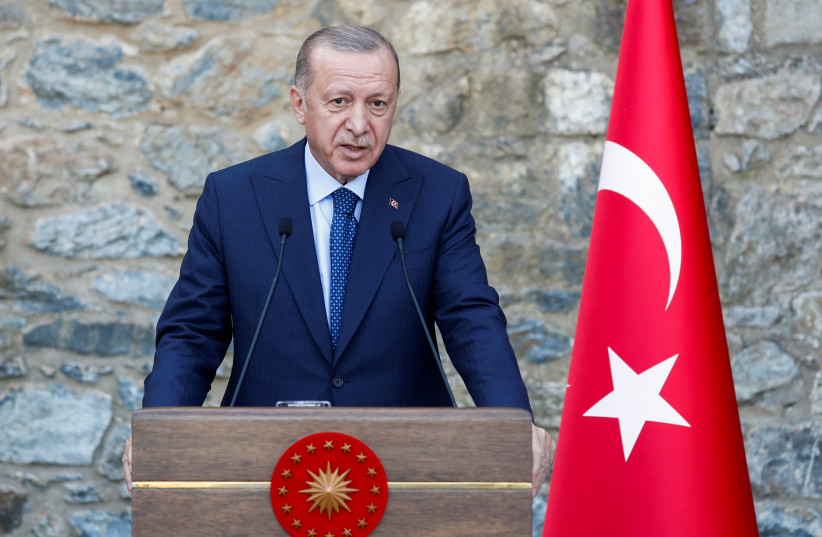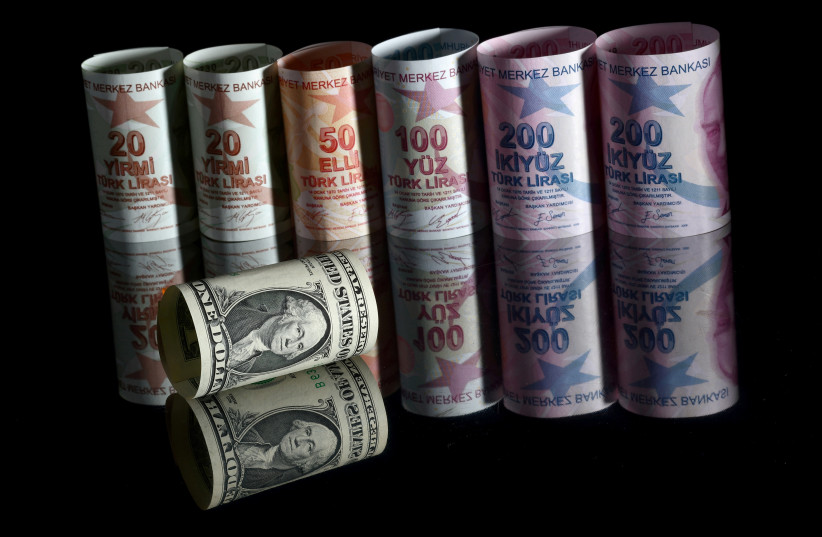This is bad news for the middle class in Turkey. The current ruling party, the AKP, came to power almost two decades ago partly on an economic platform. Although the party is a far-right Islamic party that is increasingly populist and authoritarian, its economic credentials appealed to many average people.
Today that reputation is in tatters. However, the party has drawn on various methods associated with 1920s and 1930s era fascism to stay in power, including viewing the economic battle as a battle against “foreign” enemies. Turkey’s leader Recep Tayyip Erdogan referenced “Islam” as an answer to the currency troubles earlier this week. He wanted to keep interest rates low in the name of religion.
Religion and economics don’t usually mix well. But this time Turkey appears to have succeeded, at least temporarily. The problem with the recent swings and volatility is that there is a lack of clarity over what Turkey is doing. Has it merely bought the country time, or is this a new feature of the economy?
Reports from Turkey, which are all in pro-government media, say that “during President Recep Tayyip Erdogan’s speech outlining the country’s new economic measures, $1 billion was changed into Turkish lira, chairperson of the board of directors of the Banks Association of Turkey and general manager of Turkish state lender Ziraat Bank, Alpaslan Çakar said in a statement late Monday,” Daily Sabah reported.

A new “convertible deposit system” has been created. “Earlier on the same day, Erdogan said that Turkey will no longer be dependent on imports, and pledged that no Turkish citizen will have to convert their savings from the Turkish lira to a foreign currency,” Daily Sabah said.
“Exporting companies that find it difficult to present prices due to fluctuations in foreign exchange rates, will be given an exchange rate future through the Central Bank,” Erdogan said.
Middle East Eye tried to explain the new Turkish economic tool, which it dubbed the “Turkish dollar,” in accounts. It “offers a solution to this problem: if investors convert their foreign currencies into lira and deposit them in a savings account with a certain term of maturity, Turkey’s treasury guarantees that it will get the same return as forex markets. And if the forex markets drop below the official interest rates, the investor will still get an official interest rate return.”
The goal of this tool is to bring money back into the lira. The concept of free markets, stock markets or currency exchange is that despite fluctuation, the current price is based on arbitrage, such that people will trade until there is stability. This means that risk is factored into the decisions. That is because those doing the big buying and selling are not random citizens but major banks and corporations and countries. Clearly, those trading the lira believe this new financial instrument shows Turkey is committed to a certain price of the lira against the dollar.
The question is whether Turkey’s government, central bank and authorities truly are ready to back this in the long term.
There are concerns about inflation and how Turkey will deal with imports and other issues. A lot is riding on this. Turkey is a major and growing arms exporter, gambling on things like its drone sales.
It wants to position itself as a regional power, with a role in Libya, Iraq, Syria and other countries. It also wants to be a leader of the Islamic world, having close relations with Pakistan, Iran, Malaysia and other states.
In the past some of these countries even discussed a kind of “Islamic” currency or banking system to avoid a US-led financial world order. This would cater to countries like Iran under sanctions. Turkish banks have been accused of helping Iran avoid sanctions in the past.
If Turkey becomes a financial house of cards, slowly selling itself down the river by trying to guarantee local deposits in lira, it could set up a long-term crisis and other problems for the country.
It could risk foreign investment, from Qatar and its new ties to the UAE and other states. It could also threaten the endless rule of the AKP. The AKP knows this and has tried to shut down most critical media, and jail opposition politicians. Now this war on the weakness of the lira represents a new phase for Ankara and its crisis-driven agenda.
Source: JP



